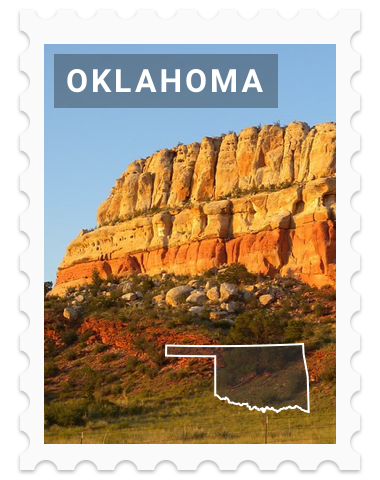Oklahoma
Discover Oklahoma

Capital
Oklahoma City
Statehood
November 16, 1907
The history of Oklahoma is deeply connected with the forced removal of Native American tribes, known as the Trail of Tears, during the 1830s. This tragic chapter of American history saw several tribes, including the Cherokee, Choctaw, Creek, and Chickasaw, being relocated to what was then known as Indian Territory. Their influence on the state's culture, from art to cuisine, remains profound.
The Land Run of 1889 and subsequent land runs opened up vast areas for homesteading, leading to the rapid growth of towns and communities. Oklahoma City, the state's capital, was founded in one such land run.
In the early 20th century, oil was discovered, turning Oklahoma into a major oil-producing state. This oil boom had a transformative impact, leading to economic prosperity and the emergence of Tulsa as an oil hub.
For those who wish to explore the history of Oklahoma, the National Cowboy & Western Heritage Museum in Oklahoma City is a must-visit, offering insights into the Old West and Native American heritage. The Cherokee Heritage Center in Tahlequah is another place to learn about the state's indigenous history.
Oklahoma's story is a mix of diverse cultures and historical events, brought together by the resilience and spirit of the people who have called this land home. Whether you're visiting the vast expanse of the Wichita Mountains Wildlife Refuge or tracing the footsteps of the pioneers along the Chisholm Trail, Oklahoma offers a journey through time that will captivate any explorer.
Source ChatGPT
Major Airport
Will Rogers World Airport

Elevation
395 m
Opened
1911
Runways
4




